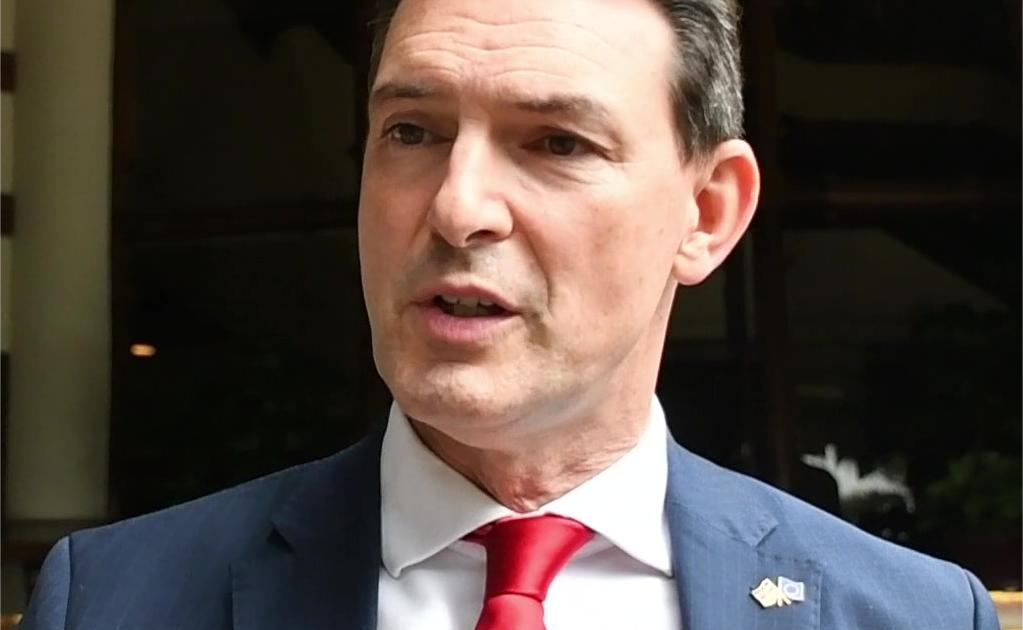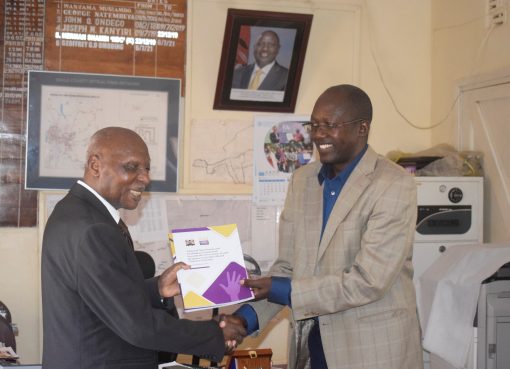The European Union (EU) will support local coffee farmers to comply with the deforestation regulations.
The European Union’s Deforestation Regulation (EUDR) aims at preventing products sold in the EU from contributing to deforestation or forest degradation.
The EUDR came into force on June 29, 2023, and applies to all companies in the country that place products on the EU market, including those that contain one of the seven commodities covered by the regulation.
According to the First Counsellor and Head of Trade section at the EU, Filipo Amato, the European Commission has applied to the European parliament to have the deforestation regulations extended by one year to give coffee producers an opportunity to comply with the regulations.
Speaking during a breakfast meeting organised by Fairtrade and the Kenya Coffee Platform (KCP), Amato noted that the application was to be considered before the end of the year.
“The regulation should have been fully applicable at the end of this year, meaning that from 1st January 2025 all operators had to comply with it, but this would require a lot of efforts that were difficult to achieve in the time remaining, and so based on the number of requests from our partner countries and the coffee producers, it was only fair to provide additional time for compliance with the regulation through our technical support,” he explained.

Businesses within the scope of the EUDR will have a further 12 months to comply with the requirements.
Under the EU Commission’s proposal, which will need to be approved by the European Parliament and Council, the EUDR will enter into force on December 30, 2025, for large companies, rather than December 30, 2024, and June 30, 2026 for micro- and small enterprises, instead of June 30, 2025.
“We are also developing programmes aimed at building capacity and support to farmers to comply with the EUDR,” said Amato, noting that the EU-Kenya Economic Partnership Agreement (EPA), with the objective to boost trade relations between the two parties and also possibly to increase export of coffee from Kenya to Europe, will see the launch of new programmes in the coming weeks to support the coffee value chain in Kenya and also other countries in the region.
Amato further noted that the coffee value chain will equally receive support under the regional initiative on improving the market access upgrade programme (MARKUP) to the EU that is funded by the International Trade Centre (ITC); thus the Commission’s proposal will now be discussed with the European Parliament and Council, who must approve it before it enters into force.
Recently the EU Commission announced a proposal for a further 12 months of “phasing-in” time for the implementation of the EU Deforestation Regulation (“EUDR”) that seeks to enhance traceability of coffee.
The government, through the Kenya Integrated Agricultural Management Information System (KIAMIS), is currently mapping out farmers and will be able to geo-locate them in order to demonstrate they are not from deforested zones.
Parliamentary coffee caucus chairman Duncan Mathenge confirmed that the legislature is working with other stakeholders to ensure a sound roadmap is crafted to ensure farmers comply with the EUDR.
“We have approached the matter from various angles; for example, President William Ruto has been able to rally the African Union to seek the extension, which by the end of the year is expected to happen when the European parliament approves it,” said Mathenge.
Most importantly, he noted that they have already started the journey to compliance and that right now the government has put in place a mechanism led by the Ministry of Agriculture and Agriculture Food Authority (AFA) to assist cooperatives and farmers in complying with EUDR and that by March next year, they will review progress, especially in the area of data collection and risk assessment.
Felix Mutwiri from AFA Coffee Directorate said that the Kenyan Government has already set up an inter-ministerial committee and is preparing a roadmap to demonstrate compliance with regulations, and already much progress has been made in all the required steps.
“We are not losing the momentum despite the extension, but we are assuming that the extension is not there and working towards ensuring compliance by the end of the year.
We have so far covered 22 per cent of counties which have coffee, and last week the committee met and looked at the gaps and how to streamline them.
We have the data collection tool shared with the relevant stakeholders, and we have also put out information to demonstrate and also meet the expectations,” Mutwiri said.
The Kenya Coffee Platform (KCP) Chairman, Karugu Macharia, hailed efforts currently being pursued to assist farmers comply with the EUDR, noting that as an organisation they have managed to bring together all stakeholders to ensure the regulations are adopted and implemented as well.
“As stakeholders, we are fast-tracking other strategies focusing on enhancing soil tests and extending farm input subsidies to boost production. Kenya was doing well in terms of coffee output between the mid-1980s and early 1990s, registering the highest production of 130,000 metric tonnes in the 1987/88 coffee year, but currently is oscillating between 40,000 and 50,000 metric tonnes,” Karugu said.
By Wangari Ndirangu





